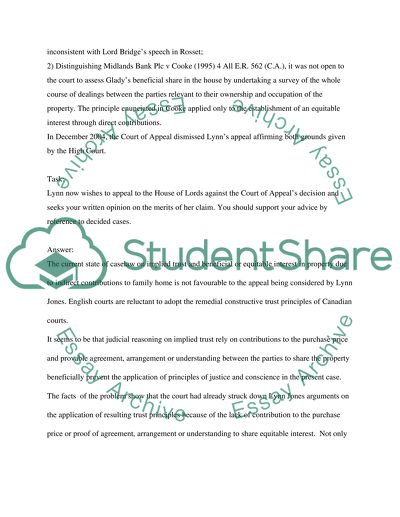Cite this document
(“Resulting and Constructive Trust in Equity & Trust Case Study”, n.d.)
Retrieved from https://studentshare.org/law/1524634-resulting-and-constructive-trust-in-equity-trust
Retrieved from https://studentshare.org/law/1524634-resulting-and-constructive-trust-in-equity-trust
(Resulting and Constructive Trust in Equity & Trust Case Study)
https://studentshare.org/law/1524634-resulting-and-constructive-trust-in-equity-trust.
https://studentshare.org/law/1524634-resulting-and-constructive-trust-in-equity-trust.
“Resulting and Constructive Trust in Equity & Trust Case Study”, n.d. https://studentshare.org/law/1524634-resulting-and-constructive-trust-in-equity-trust.


